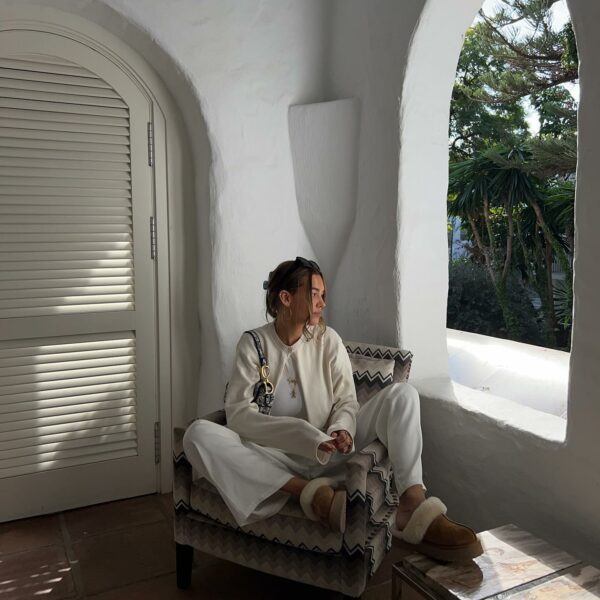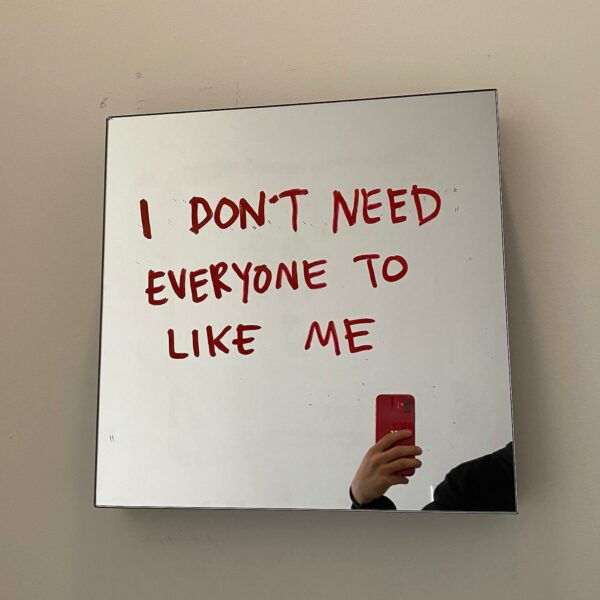When was the last time you went outside and looked at the stars? If you’re anything like us, it’s probably—and unfortunately—been a hot minute.
“The night sky is an aspect of our natural environment that we often overlook,” says Mark Westmoquette, who has a Ph.D. in Astrophysics and worked for a decade as a research astronomer before becoming a full-time yoga and meditation teacher.
This oversight is changing, however, as a wellness practice called star bathing (also known as mindful stargazing) gains popularity.
There are critical differences between typical stargazing and star bathing.
“In my mind, stargazing is about identifying constellations, using maps, perhaps using technology like telescopes or binoculars, maybe even taking photos,” Mark says.
“In contrast, star bathing is about immersing yourself in the nighttime environment. You don’t need to know anything about the stars to enjoy star bathing. [It’s about] taking in the majesty of the stars, the night sounds, the feeling of being in the night time. When we star bathe with awareness and presence, I call it mindful stargazing,” he says.
“When we slow down and take notice of our surroundings, we automatically step out of the whirlwind of thoughts and to-do lists,” Mark says. “Star bathing gets us to appreciate an aspect of our natural environment that we often overlook—the night sky. Slowing down and being present with our sensations help us to de-stress and wind down.
“But there’s more than that. Looking up at the stars is like looking out of the window of our giant spaceship—spaceship Earth. We’re all hurtling through space together on this giant ball of rock. When we see things like that, our perspective changes. We’re all in this together, traveling through the vastness of space. We come to see there’s only one planet Earth, and we all live under this same sky.
“Often, people feel inspired, more in touch and connected, and in awe of our amazing world.
And if, for some reason, all of that wasn’t enough to convince you to try star bathing, it can also help you sleep better. “Being outside in the dark just before bedtime helps our circadian rhythm enormously,” Mark says. “Instead of lying in bed looking at a screen, go out into the dark, and let your body know it’s nighttime. I guarantee this will help with sleep!”
Why is it becoming popular?
There are several reasons that Mark believes mindful stargazing is gaining popularity. One is that, “since the pandemic, there’s a much wider appreciation of the need to maintain good mental health,” he says, which is something that mindful stargazing can help with.
Another is that we as a society are living further and further away from nature, from our “natural habitat,” he explains. “Many people are seeking ways of reconnecting to the natural world.”
“The James Webb space telescope and the amazing images it has provided have also rekindled an interest in space and the cosmos,” Mark says.
And lastly, “people are looking for ways to shift their perspective and get a new view on their life and their relationship to things. Contemplating what it means to live a human life on this planet amongst this vast universe certainly brings a new view into focus. We see that we’re a tiny part of the evolution of a universe that’s currently 13.8 billion years old. We are a product of the ever-evolving universe that will continue on into the distant future,” he says.
What’s so great about mindful stargazing is that you don’t really need anything to do it, just your presence.
“Step outside on a reasonably clear night, and look to see what you can see,” Mark says. “Perhaps there are trees, buildings, light pollution, airplanes, all crowding your view. But if you can see just a few stars—or maybe the moon—then you can star bathe. Immerse yourself in your experience of how things are just at that moment. Look, listen, feel, be.
“Star bathing is what all humans have done since before we knew anything about what we were looking at,” Mark says. “Lying on a grassy hillside, looking up at a sky full of stars, and marveling at the view.”
Shop our journal collection:
Up next, be the first to know our weekly content and sign up for our Poosh newsletter.
Mark Westmoquette has a Ph.D. in Astrophysics and worked for a decade as a research astronomer. Now, he’s a full-time yoga and meditation teacher, as well as the author of a number of books on mindful stargazing. He runs regular events and retreats in the UK and Europe.






































